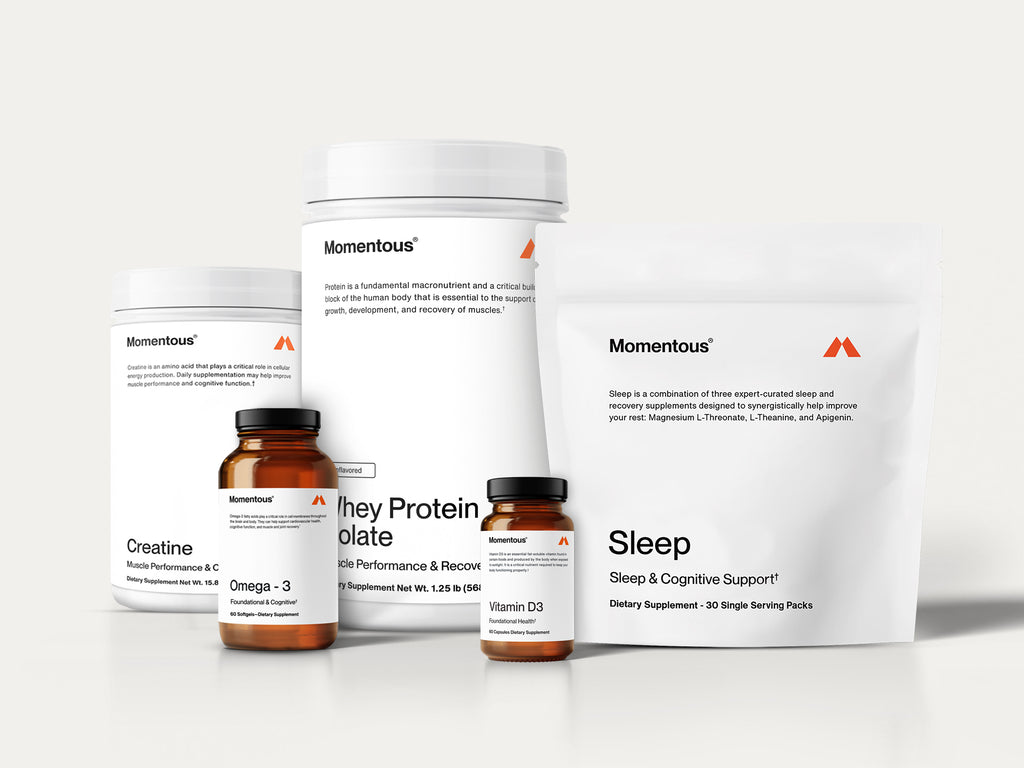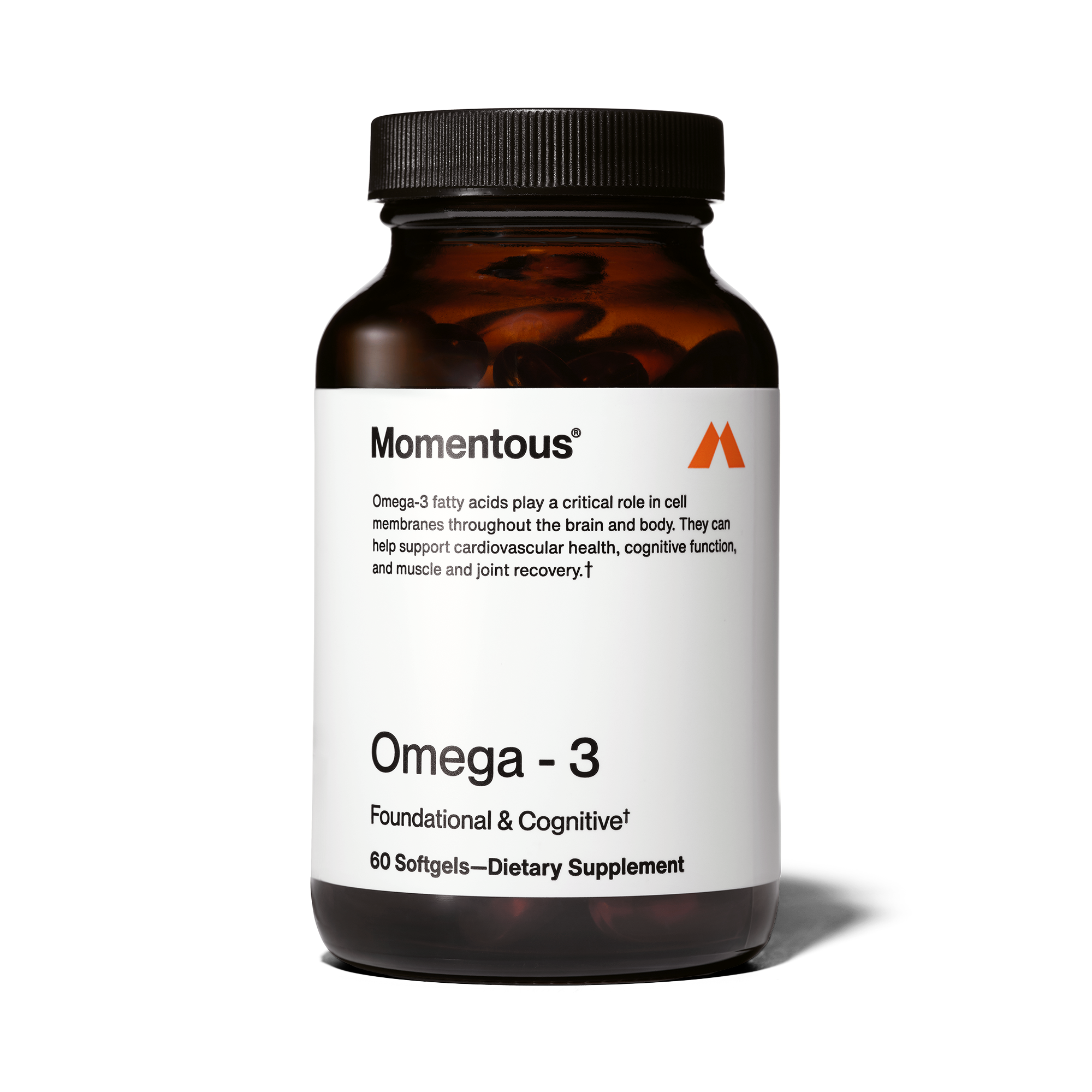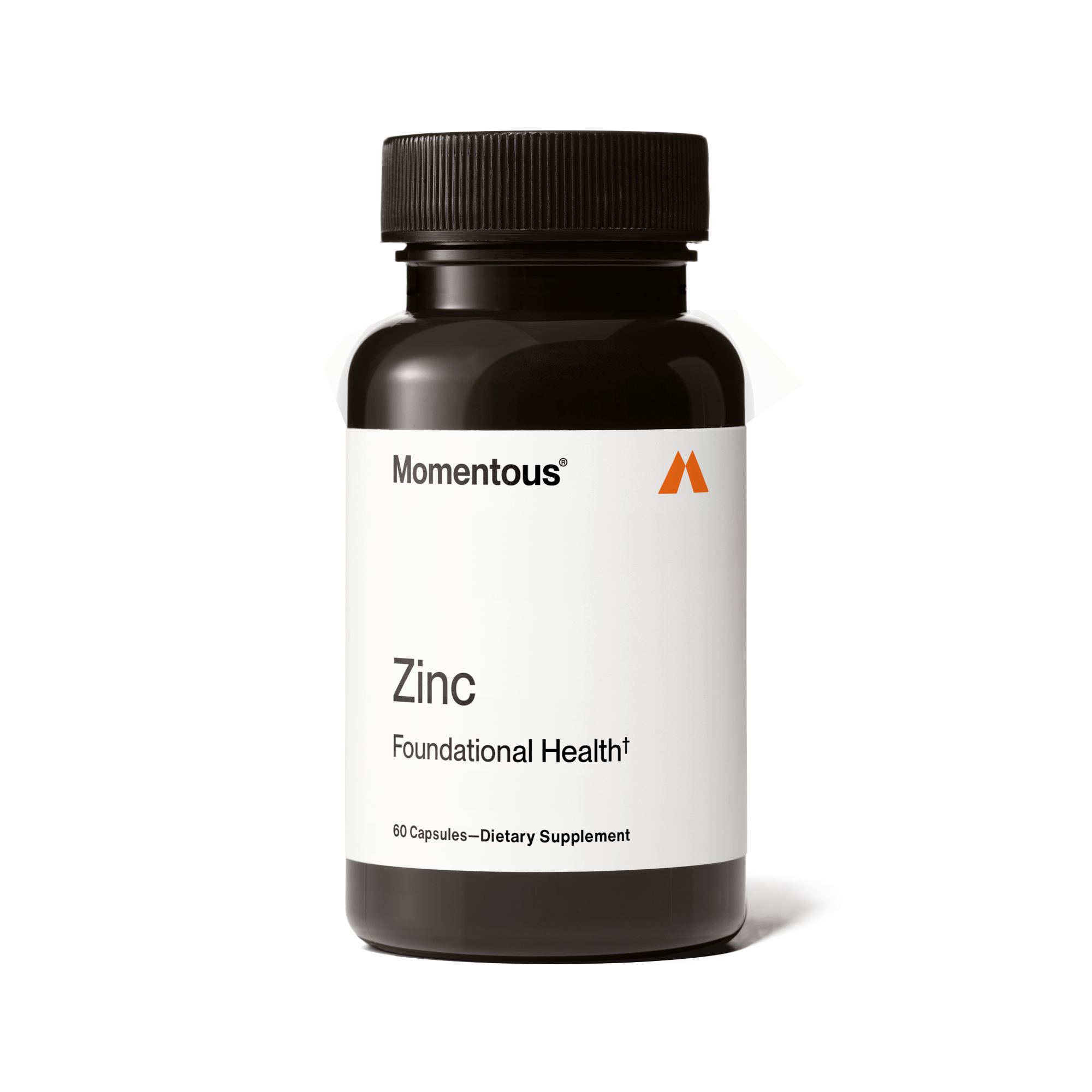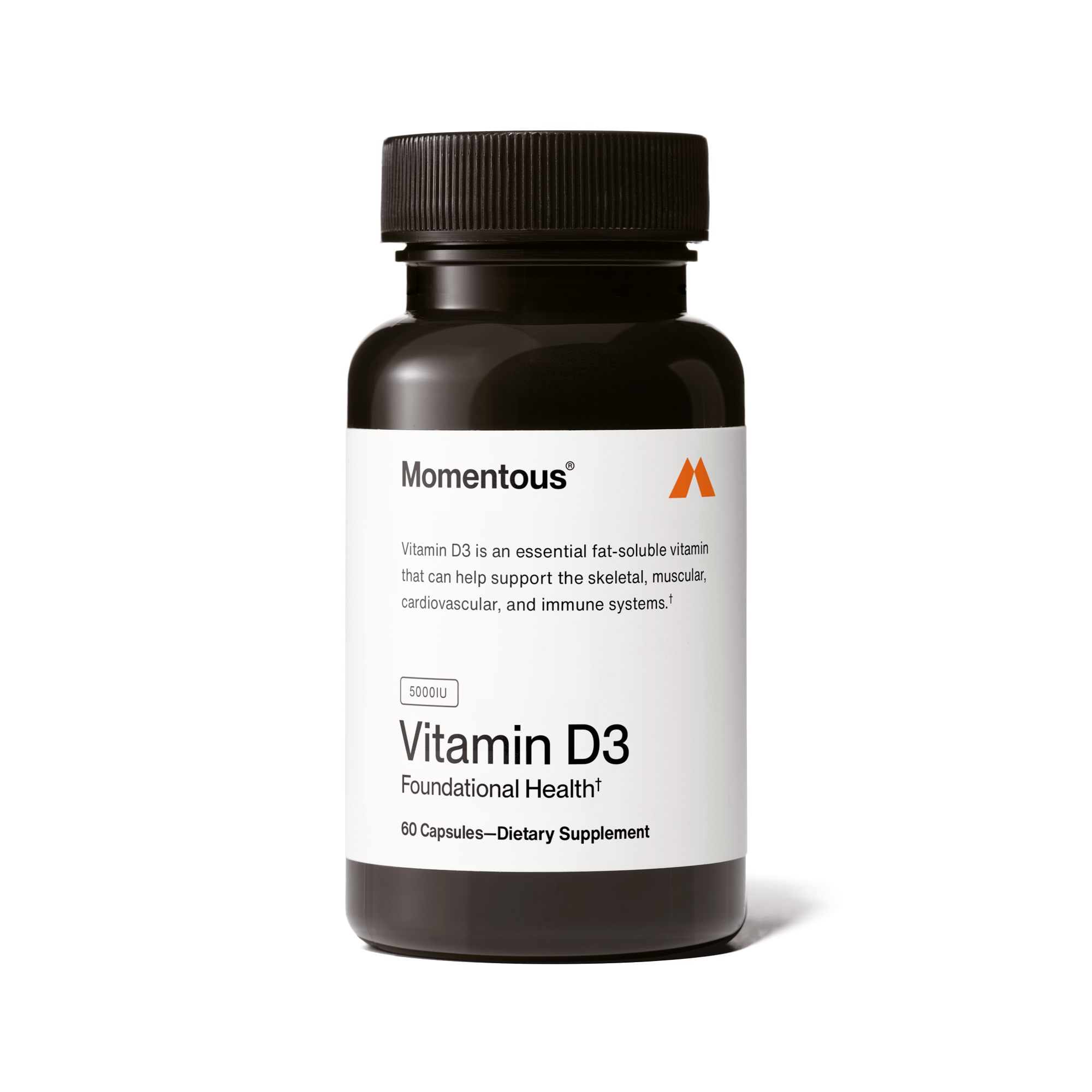Potent, clean Omega-3 for cardiovascular + brain health
Essential mineral to support immune health + cellular repair
High-strength D3 for bone + immune health
Mental health is vital to our overall well-being, profoundly shaping our daily experiences and quality of life. Embracing a proactive approach to mental health through a combination of behavioral, nutritional, and supplement interventions can empower you to live a balanced, fulfilling life. In this article, we'll delve into various strategies that complement and support one another, helping guide you on a journey of self-discovery and growth as you work towards becoming the best version of yourself.
Behavioral Interventions:
Exercise
Embracing exercise is crucial for both physical and mental well-being. Regular physical activity can help alleviate depression, anxiety, and stress symptoms. While every form of exercise has its benefits, research has highlighted that aerobic exercises, such as walking, jogging, and swimming, are particularly effective in lifting mood and easing anxiety (1). Aim to include at least 150 minutes of moderate-intensity exercise or 75 minutes of vigorous exercise in your weekly routine to achieve optimal results.
Meditation & Breathwork
Meditation and breathwork offer a transformative path to enhancing mood, reducing anxiety, and fostering mental clarity (2). A simple yet effective practice to embark on this journey is box breathing. In this technique, you'll inhale for four counts, hold the breath for four counts, exhale for four counts, and hold the breath again for four counts. By dedicating just a few minutes daily to repeating this process, you'll likely experience noticeable improvements in your overall mental state, cultivating a sense of inner peace and well-being.
Sunlight
Natural sunlight offers a simple way to regulate circadian rhythms, uplift mood, and support vitamin D synthesis (3). Try to spend at least 10-30 minutes basking in the sunlight each day, ideally during the morning or late afternoon when the sun's rays are gentler. This daily dose of sunshine helps synchronize your internal clock, positively impacting your sleep, mood, and overall mental well-being. So, step outside and soak in the sun's warmth.
Sleep
Quality sleep is essential for maintaining good mental health, providing a crucial foundation for overall well-being. Short or restless nights of sleep can take a toll on your mood, cognitive function, and emotional balance (4). To create an optimal sleep environment, prioritize getting 7-9 hours of restorative sleep each night and establish a consistent sleep schedule that works for you.
Nutritional Interventions:
Omega-3 Fatty Acids
Omega-3 fatty acids are essential fats that offer a powerful way to alleviate symptoms of depression and anxiety (5). You can incorporate these beneficial fats into your diet through foods like fatty fish (salmon, mackerel, sardines), flaxseeds, chia seeds, and walnuts. To further support your mental health journey, Momentous also offers a high-quality Omega-3 supplement that seamlessly blends with your balanced diet, providing extra care for your mental well-being.
Probiotics
Probiotics, the beneficial bacteria in our gut, hold the key to a cooperative connection between our mood and brain function. Research has demonstrated that these friendly microbes can help reduce symptoms of depression and anxiety (6). Enjoy fermented foods like yogurt, kefir, sauerkraut, kimchi, and kombucha, all packed with probiotics, to foster this gut-brain synergy.
Vitamin D
Vitamin D is vital in supporting bone health and immune function, but also in nourishing our mental well-being. Research has uncovered a connection between low vitamin D levels and the onset of depression and other mental health disorders (7). To ensure your body receives an adequate dose of this "sunshine vitamin," eat vitamin D-rich foods (such as fatty fish, egg yolks, and fortified dairy products), or consider taking a vitamin D supplement.
B Vitamins
B vitamins, including folate, B12, and B6, are essential players in maintaining healthy brain function and regulating mood. Deficiencies in these vital nutrients can contribute to depression and other mental health challenges (8). To nourish your brain, embrace a diverse diet that incorporates whole grains, lean meats, legumes, fruits, and vegetables. If needed, consider taking a B-complex supplement to provide additional support for your mental well-being.
Zinc
Zinc, an essential mineral for brain function, has been revealed to possess antidepressant properties. Research has uncovered that individuals experiencing depression often exhibit lower levels of zinc in their blood (9). To give your mind a revitalizing boost, incorporate zinc-rich foods into your diet, such as oysters, red meat, poultry, beans, nuts, and whole grains. Consider taking a zinc supplement to ensure you meet your daily requirements.
Take Action for Better Mental Health:
Enhancing mental health is a multifaceted journey, and embracing behavioral and nutritional interventions can make a major difference. By weaving exercise, meditation, breathwork, sunlight exposure, and quality sleep into the fabric of your daily routine, along with a balanced diet abundant in Omega-3 fatty acids, probiotics, vitamin D, B vitamins, and zinc, you can take the reins of your mental health and elevate your overall well-being.
Caring for your mental health is an ongoing adventure; there's no one-size-fits-all solution. Practicing patience with yourself is crucial. Be open to adjusting your strategies as you grow and evolve. At Momentous, we're dedicated to supporting you every step of the way. Our range of high-quality supplements is crafted to seamlessly blend with your holistic mental health strategies, empowering you to do more and be more. Take the first step today and prioritize your mental health - Your future self will undoubtedly be grateful.
----
(1) Fox, K. R. (1999). The influence of physical activity on mental well-being. Public Health Nutrition, 2(3A), 411–418.
(2) Carmody, J., & Baer, R. A. (2008). Relationships between mindfulness practice and levels of mindfulness, medical and psychological symptoms and well-being in a mindfulness-based stress reduction program. Journal of Behavioral Medicine, 31(1), 23–33.
(3) da Silva, A. B. J., Barros, W. M. A., da Silva, M. L., Silva, J. M. L., Souza, A. P. da S., da Silva, K. G., de Sousa Fernandes, M. S., Carneiro, A. C. B. da F., Souza, V. de O. N., & Lagranha, C. J. (2022). Impact of vitamin D on cognitive functions in healthy individuals: A systematic review in randomized controlled clinical trials. Frontiers in Psychology, 13, 987203.
(4) Minkel, J. D., Banks, S., Htaik, O., Moreta, M. C., Jones, C. W., McGlinchey, E. L., Simpson, N. S., & Dinges, D. F. (2012). Sleep deprivation and stressors: evidence for elevated negative affect in response to mild stressors when sleep deprived. Emotion (Washington, D.C.), 12(5), 1015–1020.
(5) Liu, J. J., Galfalvy, H. C., Cooper, T. B., Oquendo, M. A., Grunebaum, M. F., Mann, J. J., & Sublette, M. E. (2013). Omega-3 polyunsaturated fatty acid (PUFA) status in major depressive disorder with comorbid anxiety disorders. The Journal of Clinical Psychiatry, 74(7), 732–738.
(6) Slykerman, R. F., Hood, F., Wickens, K., Thompson, J. M. D., Barthow, C., Murphy, R., Kang, J., Rowden, J., Stone, P., Crane, J., Stanley, T., Abels, P., Purdie, G., Maude, R., & Mitchell, E. A. (2017). Effect of Lactobacillus rhamnosus HN001 in pregnancy on postpartum symptoms of depression and anxiety: A randomised double-blind placebo-controlled trial. EBioMedicine, 24, 159–165.
(7) Ganji, V., Milone, C., Cody, M. M., McCarty, F., & Wang, Y. T. (2010). Serum vitamin D concentrations are related to depression in young adult US population: the Third National Health and Nutrition Examination Survey. International Archives of Medicine, 3(1), 29.
(8) Mikkelsen, K., Stojanovska, L., & Apostolopoulos, V. (2016). The effects of vitamin B in depression. Current Medicinal Chemistry, 23(38), 4317–4337.
(9) Wang, J., Um, P., Dickerman, B., & Liu, J. (2018). Zinc, magnesium, selenium and depression: A review of the evidence, potential mechanisms and implications. Nutrients, 10(5), 584.














